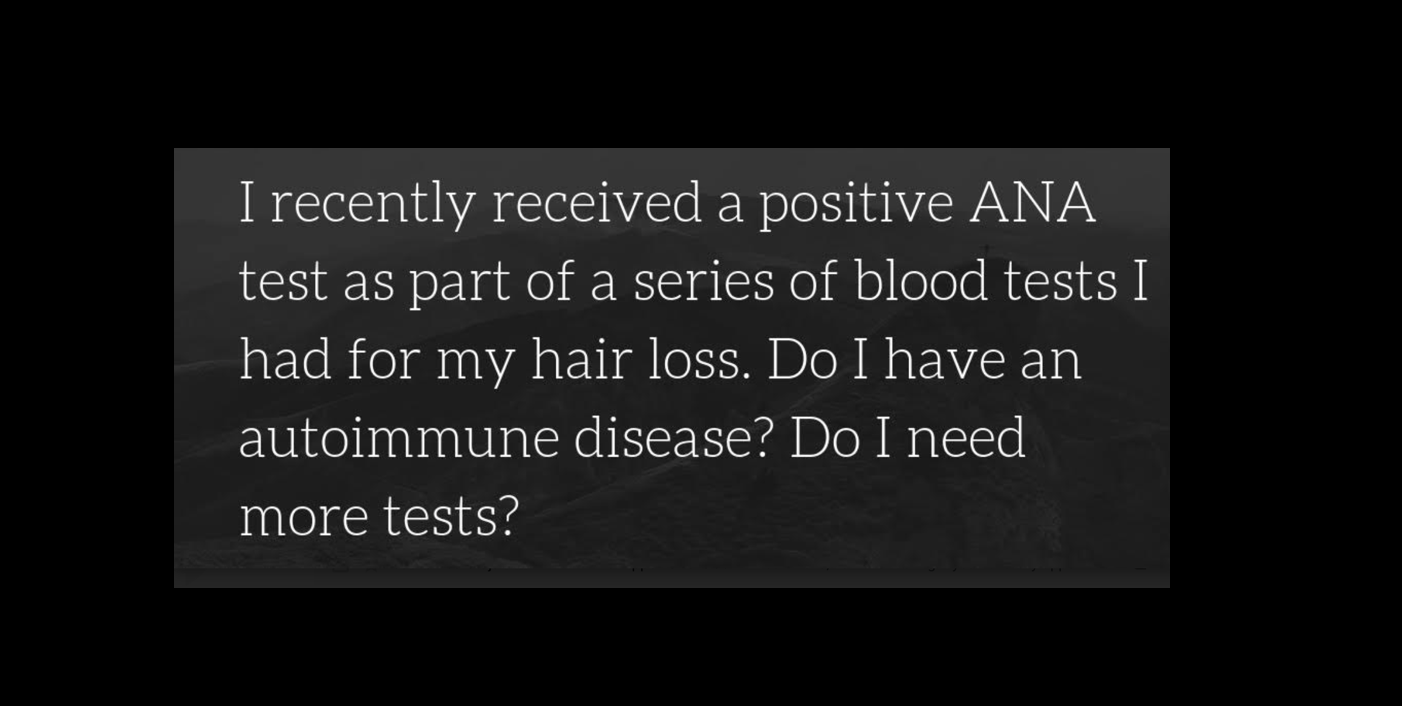Positive ANA Tests
QUESTION
QUESTION:
I had a positive ANA test result as part of a series of blood tests for my hair loss but feel quite healthy. Do I have an autoimmune disease? Do I need more tests?
ANSWER
Thanks for the question. Without fully knowing all the details of your health and medical history, there is no definitive “yes” or “no” answer here. However, there are some important points to consider. In general, the answer depends on the “level” of your ANA test (how high it is) and whether or not your truly have any symptoms or signs of autoimmune disease.
About 5-10% of the population has a “false positive” ANA that carries no significance for their health. This means the test result comes back looking positive but the patient has no autoimmune disease whatsoever. These are patients who are healthy but have an ANA result of 1:80 and sometimes 1:160. These completely healthy individuals answer “no” when asked questions about whether they have fatigue, joint pain, chest pain, mouth ulcers, sun sensitivity, rashes, blood clots, severe dry eyes, severe dry mouth, Reynaud’s disease, headaches, shortness of breath, repeat miscarriages (women) and other abnormal blood test results. These individuals do not have the autoimmune disease lupus or other autoimmune diseases.
Individuals who do answer “yes” to some of the above questions or who have higher ANA results such as 1:320 or 1:640 often require more specific and detailed autoimmune testing. This may involve tests such as anti double stranded DNA, ESR, blood counts, kidney and liver function, urinalysis and extractable nuclear antigen (ENA). Other tests may be important too. Patients with high ANA results and who have symptoms on questioning can be considered for referral to a rheumatologist.
In general, many physicians do not usually order tests for ANA unless there is some even small degree of suspicion of a possible autoimmune connection. (Randomly testing for ANA without a good cause is not useful for most). A positive test should be followed up with detailed questioning and possibly additional blood tests to determine if it is more likely a false positive or true indicator of underlying autoimmune disease.

